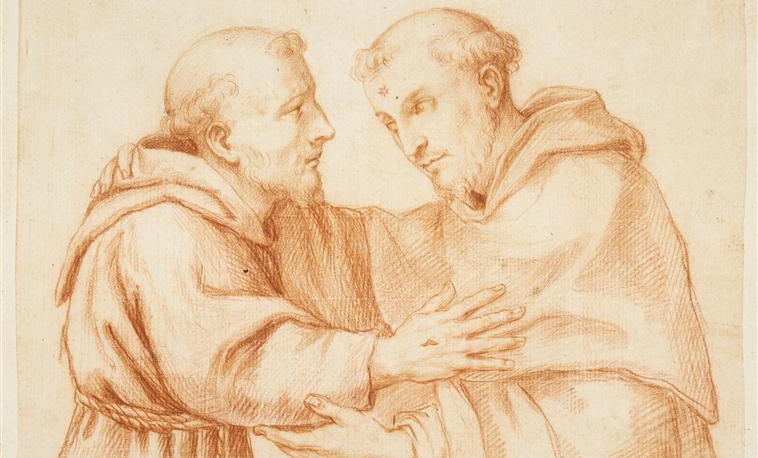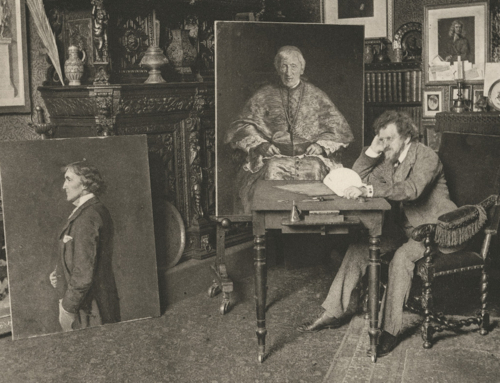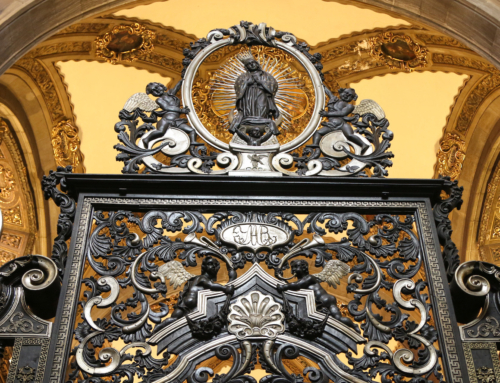“What’s the difference between a Franciscan and a Dominican?”
Sometimes this question precedes a joke about one or another idiosyncrasy of these communities, but most of the time it comes from a true interest in the mendicant Orders and their saintly founders.
St. Francis of Assisi and St. Dominic de Guzmán, revolutionary in their vision of a new form of religious life, simultaneously formed brotherhoods of travelling, begging preachers. With a strong focus on the fraternal life, they called themselves “friars,” from the Latin for “brothers.” In fact, the two communities were so similar that they began to address the other’s founder as a patron of their own, Holy Father Dominic to the Franciscans and Holy Father Francis to the Dominicans.
Like fraternal twins, the two Orders are so similar that their differences become more pronounced. The Dominicans are stereotypically identified for their intellectual emphasis, while the Franciscans seem to focus more on the heart. Through the tension and debate that arise from these qualities, however, the friars are always focused on one thing: the service of God and His Church.
More than collaborators, Saints Francis and Dominic were companions. Considering the complementary traits of their Orders, we can compare them to the theological virtues of faith and hope. By these two virtues, as by the testimony of these two saints, God draws His people close to Him in mind and heart.
Dominic, the Light of the Church and Doctor of Truth, may serve as a personification of the virtue of faith. Since it is by the intellect that a soul is able to know truth, this virtue empowers the mind to know God and those things He reveals about Himself. In the spirit of St. Dominic, the Friars Preachers devote themselves to the study of Truth, which became the Order’s ensign, Veritas. Faith receives the revelation of God as “First Truth-Speaking,” as inviting man to an intimate knowledge of Him.
For their own part, the Friars Minor, like the Poor Man of Assisi himself, have devoted themselves to Lady Poverty. While Faith considers God as First Truth, hope looks to God as Perfect Good and the source of our eternal happiness. Poverty is an expression of man’s clinging to that one worthwhile good, the one thing necessary. “To him that longs for something great, all lesser things seem small” (ST II-II.17.2 reply 3). Francis readily abandoned the world because of his unwavering hope in the promise of beatitude in God’s presence forever. It makes sense, therefore, that the Franciscans should take for their motto Pax et Bonum, “Peace and Goodness.”
So faith, hope, love remain, these three; but the greatest of these is love. (1 Cor 13:13)
While many have appropriated the virtue of charity to Franciscans, this virtue is better understood as a point of convergence for both Orders, where faith and hope contribute to the final union with God that occurs through charity. Charity needs faith in order to know God and so to love him as Friend or Beloved; it needs hope to carry the soul through the arduous paths of this life and to cling to the promises made by God to draw all things to himself.
“You are my companion and must walk with me. For if we hold together no earthly power can withstand us.” (St. Dominic to St. Francis in the Lateran Basilica)
Like Saints Francis and Dominic, the virtues of faith and hope are companions. The word ‘companion’ literally means “to (break) bread together.” Having served their Master on earth, Saints Dominic and Francis dine at long last at His table. Drawn to God through their faith and love, the two friars are united to Charity Himself.
Holy Fathers Francis and Dominic, pray for us!
✠
Image: Anonymous, Accolade fraternelle de saint Dominique et saint François (Photo: Michel Urtado, musée du Louvre).







